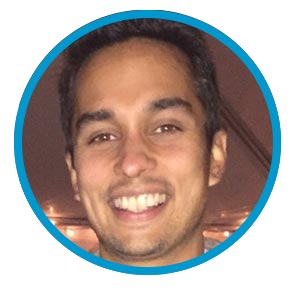Introduction and Background
Adam Beharry, PhD, is a Flagship scientist who describes his work as applying advanced technical knowledge and critical thinking to expand Flagship’s tissue image analysis in neuromuscular and rare diseases.
Adam’s degrees include:
- BS – Exercise Science from The University of South Carolina
- MS – Health, Education, and Sports Science from The Citadel
- PhD – Rehabilitation Sciences – Neuromuscular Plasticity from The University of Florida

From an early age, Adam says that he enjoyed trying to find solutions for difficult problems, no matter the field. He shared that although this mindset is not specific to being a scientist, he thinks that being a scientist allows him to constantly try to answer difficult biological questions.
Professional Experience
Most recently, Adam was the science manager at the United States Anti-Doping Agency (USADA). At USADA, he managed the Athlete’s Biological Passport and worked to develop new, less invasive testing methods for the detection of performance enhancing drugs in athletes.
What I look forward to most is working with new clients on evaluating a treatment for a disease which historically never had one.
Working at Flagship
He was attracted to working at Flagship by the ability to use cutting-edge technology to answer biological questions.
Adam’s favorite part of being at Flagship is working with clients using our image analysis software to evaluate therapeutics in ways that have never before been considered.
“Much of the work I do focuses on developing therapeutics for rare neuromuscular diseases where treatment strategies are constantly improving,” said Adam. “What I look forward to most is working with new clients on evaluating a treatment for a disease which historically never had one.”
Advice for Young Scientists
If he had the opportunity to “do it over again,” Adam shared that he wouldn’t change much. “The only thing I would tell a young person interested in science is to take your time,” said Adam. “Think outside the box when trying to find the answer as this will help to advance science.”
